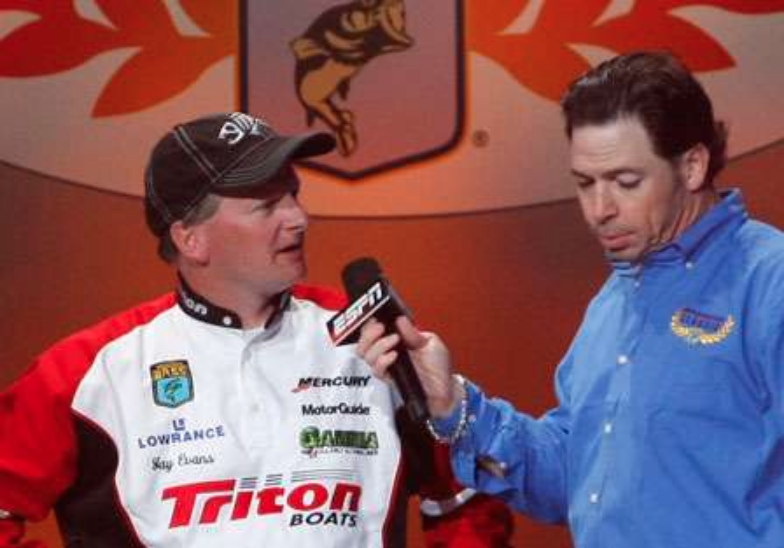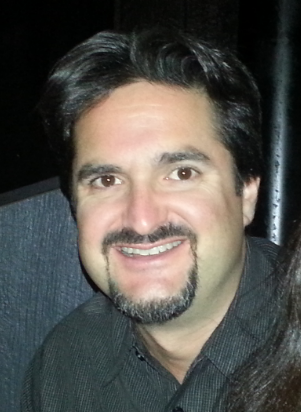
LAKE HAVASU CITY, Ariz. — Many anglers like to escape to the water, leaving the cares of the world back on land.
Jay Evans is certainly one of them, but he knows that a day of fishing always is followed by a hard day of work, and it’s not necessarily work he can wait a day to tackle.
Evans is the CEO of Inimmune, a biotech company that for the past five years has been at the vanguard of vaccine research, better protecting people from everything from allergies to cancer to COVID-19. He co-founded the company in 2016 at the same time he and 14 other scientists went to work at the University of Montana. There, they started what is known as the Center for Translational Medicine, where they take discoveries in the lab and turn them into medical treatments that help people across the world.
Since its founding, Evans’ team has grown from 15 researchers to 60, and they’ve received more than $97 million in National Institutes of Health grants and contracts to conduct their work both at the university and at Inimmune.
It’s important work, historically for the 10s of millions of people vaccinated against one ailment or another every year, but especially now in the face of the COVID-19 pandemic. Dr. Evans — he has a Ph.D. from Oregon State University in molecular and cellular biology — and his team have spent the better part of the past year working to improve vaccines to short-circuit the novel coronavirus, as well the numerous mutations cropping up across the globe.
Needless to say, Evans isn’t fazed by the attention he’s getting as he sits in third place at the TNT Fireworks B.A.S.S. Nation Western Regional here in Arizona. In fact, this kind of pressure likely is a breeze to the 50-year-old Missoula, Mont., resident, given that he’s dealing with multimillion dollar projects, not to mention literal matters of life and death, on a daily basis.
“I love having the chance to be here and be fishing,” Evans said Wednesday evening after he caught a limit of five bass that weighed 17-10 that put him 14 ounces from the tournament lead. “But every day I go out, there’s a hundred emails waiting for me. I have to pick out the ones that can’t wait and get to work on them.”
Speaking of breeze, Day 2 of the Western Regional was canceled due to high winds blowing across the Lake Havasu region on Thursday. Evans and the remainder of the 177 competitors in the field (89 anglers and 88 co-anglers) all will fish on Friday to complete a shortened, two-day tournament.
For Evans, the cancellation is a chance to work a few hours before another day relishing his life-long hobby.
He began fishing as a kid in eastern Washington State, though his quarry at a young age tended to be the perch and bluegill he caught from the banks of Columbia River tributaries. He discovered bass fishing in high school and fell in love with the sport; so much that when he went away to Pacific Lutheran University in Tacoma and couldn’t borrow his dad’s bass boat any longer, he joined the Evergreen Bass Club, a B.A.S.S. affiliate, so he could get a ride onto the water.
Competition became another part of the sport’s siren call to him. After getting his master’s degree and doctorate in Corvallis, Ore., work necessitated moves to various stops around the U.S. But no matter where he went — Memphis, Dallas and in 2000, to Montana — Evans found the local B.A.S.S.-affiliated club and honed his hobby, and his passion, every time.
“I learned a lot, getting to fish all over the country,” he said. “It made me a better angler. I can fish wood in Texas or a big grassy lake in Florida. And I can fish a big muddy river.”
Kind of like the Red River, which Evans fished as a competitor in the 2009 Bassmaster Classic in Shreveport, La. He qualified for his one and only Classic through the B.A.S.S. Nation, and he held his own against some of the sport’s biggest names, making the cut and finishing 25th out of 51 anglers with a 31-7 total. Evans cashed a $12,000 check too, but the prize money paled in comparison to the thrill of competing against heavyweight pro anglers.
“It’s hard to put that experience into words,” Evans said. “I spent most of my adult life, certainly my childhood, wanting to be on that stage, to be around those guys I read about in Bassmaster Magazine. The angler meetings, the bus ride, being on stage with thousands of people out there cheering and your wife and kids in the front row — they just take care of you there. B.A.S.S. takes care of you, and I’ve fished them all my life because of the way they treat you.”
Of course, treating people is what Evans’ lifework is all about. He’s reached the B.A.S.S. Nation Championship five times through the years, and he would love to have another crack at a national title later this year, which could bring a Classic berth in 2022.
“There’s no question I’d love to make it back,” Evans said. “That’s why I drove all the way here from Montana. But I’m not as good an angler as I was back then. I just don’t have the amount of time to spend on it I once did because of work. But I don’t regret that. I’ve done things fishing with B.A.S.S. that I never thought possible.”
Back in Montana, at the university and Inimmune, he’s helping people achieve their own goals by working hard for a healthier tomorrow.
“COVID is never a good thing if you’re a vaccine researcher,” Evans said. “It brings in a lot of federal dollars and you do the research you need to do. But there’s never a silver lining.”
“In six months, we may likely need improved vaccines, and we’ll do what we do to help that happen.”





